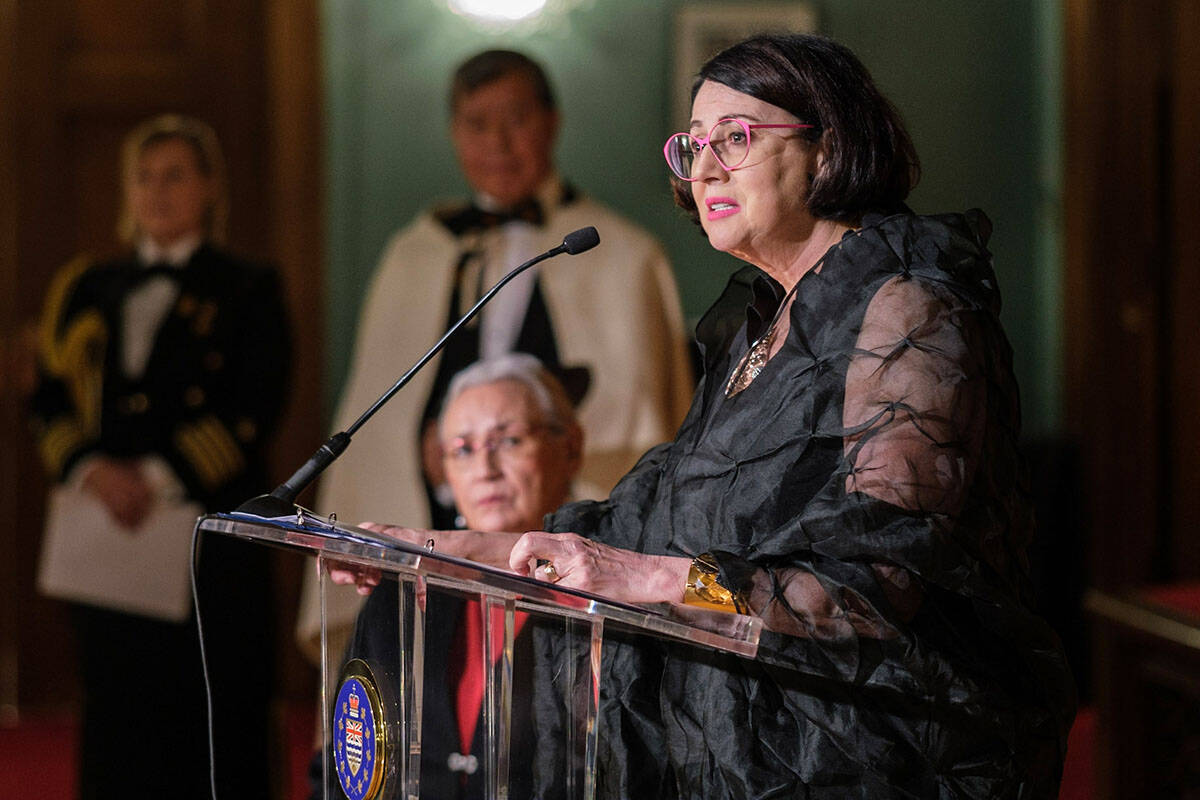Lt. Gov. Janet Austin said much work remains ahead when it comes to reconciliation.
“What is required is nothing short of revolutionary,” said Austin during the inaugural ceremony for the British Columbia Reconciliation Award held Jan. 12.
“But the revolution we seek will not happen overnight if it is to herald real change. It will require reform in policy and processes, investments in social and physical infrastructure and sustained long-term commitment. It must be anchored in honest and respectful relationships with each other, across cultures and social barriers, in communities and among different peoples.”
The ceremony recognized both the 2021 and 2022 recipients of the award recognizing individuals and organizations who have furthered Reconciliation. It draws inspiration from Austin’s predecessor, Steven Point, Xwe li qwel tel, who founded the award but was unable to attend himself because of illness.
Austin said the award winners inspired her and all across the province.
“We are called by you to do the hard work of Reconciliation, to build the trust that is needed among different peoples,” she said.” Through your examples, we see the transformative power of Reconciliation when practiced with authenticity, sustained commitment and real practical change.”
Ktunaxa Hereditary Chief Sophie Pierre, a member of the selection committee, said recipients embody the vision of Point in referencing his red cedar canoe created as a symbol of reconciliation.
“(We) are all in the same canoe and that we must paddle together to move forward.”
RELATED: PHOTOS: Artists’ paddles hung in Victoria symbolize commitment to reconciliation
Recipients for 2021 included nine individuals and organizations: Grand Chief Stewart Phillip of the Penticton Indian Band and Union of British Columbian Indian Chiefs (UBCIC) with wife Joan Phillip accepting on his behalf and environmental activist and educator David Suzuki, to name a few.
Recipients for 2022 included six recipients and co-recipients, such as former Tsawwassen First Nation Chief and current Chancellor of Kwantlen Polytechnic University Kim Baird; and DIVERSEcity – Surrey Local Immigration Partnership.
The event took place against the background of news that radar searches at the site of the former Lebret Indian Industrial School in Saskatchewan found more than 2,000 ‘anomalies’ over the past year. The search also led to the discovery of human remains, which searchers said date back to the period when the school operated.
Phyllis Webstad, founder of Orange Shirt Day and Ambassador of the Orange Shirt Society, said earlier this month that reconciliation is only possible when truths known for generations come to light in expressing deepest thoughts and prayers with the survivors and families of Star Blanket Cree Nation.
Austin’s remarks also touched on the legacy of residential schools.
“I’m hopeful that we have reached in Canadian society, that Canadians have finally been awakened, awakened to our hearts to the legacy of colonialism and the harms of the past, to the truth of the appalling treatment of Indigenous children in residential schools and to the responsibility we all share to contribute to the healing that is needed in Canada.”
@wolfgangdepner
wolfgang.depner@blackpress.ca
Like us on Facebook and follow us on Twitter.

